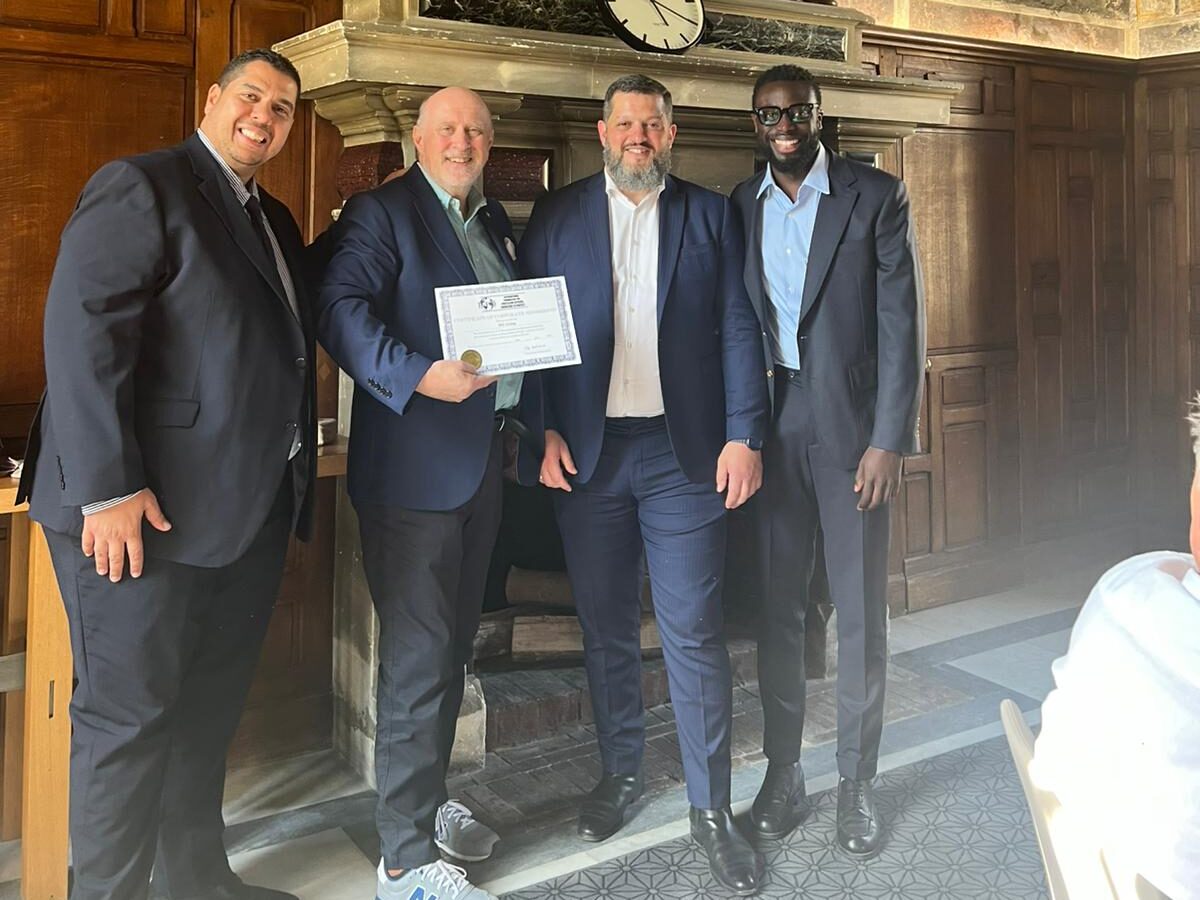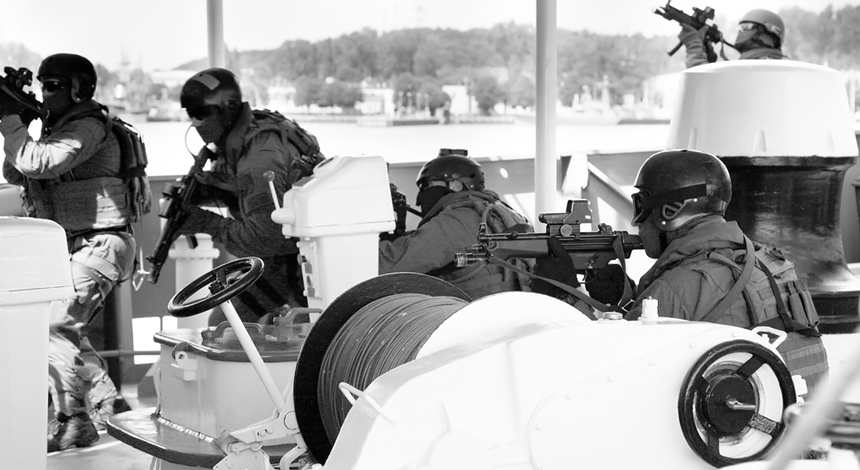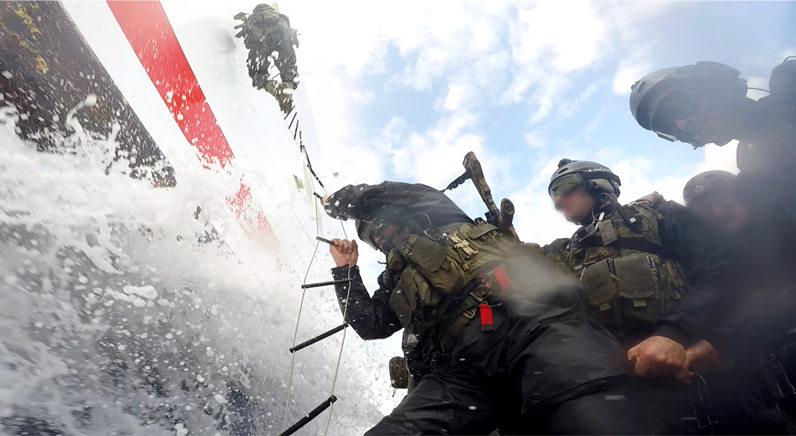Written by Steven Jones, Maritime Director, Security Association for the Maritime Industry (SAMI).
The past 12 months have seen the media rushing to state that piracy in the Indian Ocean has been defeated and as a result private maritime security companies will be driven out of business. Despite reports to the contrary the industry is still very busy protecting shipping and the outlook for the year ahead is positive.
The maritime security industry has had to grow under the spotlight of rigorous attention. So any signs of problems within the sector have been leapt upon, with industry commentators keen to suggest that maritime security solutions are no longer attractive.
However, it should be noted that the summer saw more armed transits across than in any prior months, according to the data from a leading flag State. What has happened though is something of a price war has developed which has seen fees slashed by 30% or more.
In a business with high costs, high risks and zero room for error any suggestions that low price alone is sufficient to win business has caused some consternation. How, for instance, can seemingly unsustainable offerings and a steep drop in operative day rates seemingly be aligned with a view of a quality service? According to the thoughts of many in this industry, this is dangerous oxymoron, and it is something which will need to be carefully managed in the year ahead.
There is concern some companies have fixated on a “win business at all costs” mentality, focusing more readily on forcing the competition out of business rather than at their own viability and retention of staff. Such an approach does not appear befitting of an industry which has such a unique and complex role to deliver on.
A degree of equilibrium is urgently needed in the year ahead, and a cycle of maritime security “boom and bust” must be avoided. Despite fewer attacks it is the considered opinion that nothing has actually changed in Somalia, and the pirates are still out there. Indeed, experts believe that a piracy resurgence is wholly possible if the conditions are right. So vessel vulnerabilities still need to be scrupulously assessed, and where armed guards are needed, then the highest standard ones available should be used.
The private maritime security industry has made amazing progress by introducing and embracing new regulatory structures for private maritime security companies (PMSCs) over the past 3 years since SAMI’s launch and thereby gaining credibility as an effective deterrent against piracy.
This regulatory structure is based on three key documents. BIMCO’s GUARDCON which provides a standard contract for the use of privately contracted armed security personnel (PCASP) embarked on ships transiting the High Risk Area. ISO PAS 28007:2012 is the standard all PMSCs should be working towards (37 PMSCs have now completed certification with around another 15 PMSCs in the pipeline of certification). The 100 Series Rules for the Use of Force, a “model” set of RUF, based on self-defence, acts as a benchmark for the use of reasonable and necessary force in the protection of a ship against hijacking by pirates.
These three foundation documents, written for the North- West Indian Ocean, provide the basis on which we can build for new areas of activity, amending and adapting them as appropriate.
The question we now need to ask ourselves is “what is the next stage?” Is it, as many believe, the development of vetting, training and education of the operatives used by PMSCs? After all, these are the individuals that are entrusted with so much and are the custodians of the hard-won company reputations.
In these challenging times, with rates under extreme pressure, making margins tighter, it is difficult for PMSCs to focus on anything other than the bottom line. But this has to be the point at which we should be looking at training standards and deciding, what is relevant, practical and cost-effective whilst providing a high quality professional operative. There also need to be robust contracts that work well for both contracting parties, with insurance in place to cover unforeseen events.
It is true that many PMSCs within SAMI have established their own comprehensive training packages, but without an internationally recognised standard much of this hard work doesn’t get the recognition or credibility it deserves.
Is it now it is time for us to collectively evolve and develop international standards for operatives? Standards which are fit for purpose and achievable providing a well-designed training system that feeds into other areas of maritime security from ports, to offshore platforms and ships and demonstrating professionalism rather than the race to the bottom.
Price in any business is a major issue, and for shipping companies it is almost inevitable that many may be drawn to the lowest quote on the table. However, it should always be borne in mind that profit and operational demands will take a massive hit if a tragic incident were to take place.
The cost of getting things wrong will far outweigh any potential savings if the service delivery is not as required. It is incumbent on shipping executives to appreciate the surrounding demands and wider picture of appointing a PMSC and placing armed guards onboard.
There must be a vigorous vetting process and while economics and commercial demands will always be vitally important, they cannot be the only driver. Shipping companies will wish to keep their operating costs down, but that has to be balanced against risk.
What a Master, crew, owners, charterers, insurers and all stakeholders require is that the team embarked is suitably qualified, properly armed and fully trained and effectively resourced and supported to protect the vessel and crew – if required to do so. This element of the equation should not be about cost, but about standards, resources and expertise.
As part of one of the most compelling public-private partnerships ever, PMSCs and navies have done so much to protect seafarers, shipping and global trade from attack. This is something which should be applauded and which can evolve to react to whatever forms of maritime threat emerge.
[su_button url=”http://www.seasecurity.org/” target=”blank” style=”flat” background=”#df2027″ color=”#ffffff” size=”10″ radius=”0″ icon=”icon: arrow-circle-right”]Find out more about SAMI here[/su_button]





















